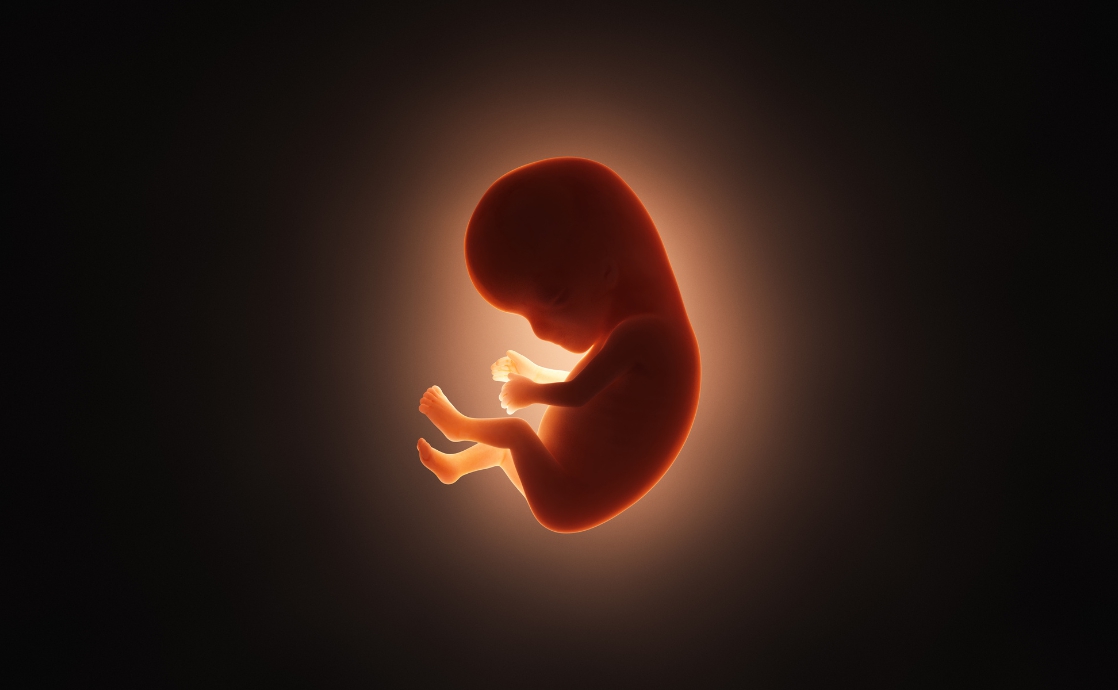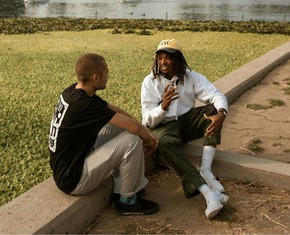The views expressed in our content reflect individual perspectives and do not represent the authoritative views of the Baha'i Faith.
Our culture still struggles to answer a very basic question: When does life begin? Let’s look at the science, as well as the moral and spiritual sides of the issue, and see if we can figure it out together.
One fascinating way to begin thinking about this question occurs in the writings of Baha’u’llah, the prophet and founder of the Baha’i Faith, who wrote:
Know that the soul which is common to all men cometh forth following the commingling of things and after their maturation, as thou dost observe in the germ: once it hath developed to its predestined stage, God manifesteth the soul that was latent within it.
RELATED: If We Have a Soul, Where Does it Live?
This passage, written in the mid-19th century, offers a remarkable, prescient level of insight into not only how the spiritual reality of each human comes into being, but into the science of conception itself. However, since Baha’u’llah also taught the primary Baha’i principle of the agreement of science and religion, let’s first let’s consider the science – and an important definition.
Life, Webster’s Dictionary says, is “that property of plants and animals which enables them to grow.” Generally science concurs, defining life as the potential to develop.
Life is also that hard-to-define quality, especially in human beings, which grants us consciousness, and which some call the soul. Despite many attempts, our advanced sciences have not yet found a way to create life – one of the reasons why many think of it as a sacred trust.
Do Our Lives Begin at Conception?
Human life, the majority of scientists agree, begins after the sperm fertilizes the egg and brings into being a new individual. Here’s one of the accepted scientific definitions, from Dr. Keith Moore’s noted medical school textbook Essentials of Human Embryology:
Human development begins after the union of male and female gametes or germ cells during a process known as fertilization (conception).
Fertilization is a sequence of events that begins with the contact of a sperm (spermatozoon) with a secondary oocyte (ovum) and ends with the fusion of their pronuclei (the haploid nuclei of the sperm and ovum) and the mingling of their chromosomes to form a new cell. This fertilized ovum, known as a zygote, is a large diploid cell that is the beginning, or primordium, of a human being.
Another standard medical text – Human Embryology and Teratology – defines the beginning of human life this way: “Although human life is a continuous process, fertilization is a critical landmark because, under ordinary circumstances, a new, genetically distinct human organism is thereby formed.”
The official statement on the subject from the American College of Pediatricians says:
The predominance of human biological research confirms that human life begins at conception – fertilization. At fertilization, the human being emerges as a whole, genetically distinct, individuated zygotic living human organism, a member of the species Homo sapiens, needing only the proper environment in order to grow and develop.
Understanding Conception As a Process, not an Event
Despite what many may think, conception is not a singular, all-at-once event that occurs the moment the sperm and the egg meet. Instead, conception is a process, and a fairly extensive one at that. Understanding the actual biology of conception can help us appreciate its complexity and the astonishing everyday miracle it represents.
To conceive, the sperm fertilizes the egg – not immediately, as some believe, but approximately an hour after coitus. One sperm cell passes through the protective membrane around the egg, called the cumulus oophorus, and the sperm’s nucleus then seeks the nucleus of the egg to fertilize it. When the two nuclei from the egg and the sperm merge, the combination creates new life – but not right away, as is popularly believed.
This process, like all processes of growth and development, happens gradually. For the first 12 hours or so, that fertilized egg remains a single cell – what is known as a zygote – for approximately half a day. During that time, and within that single-celled zygote, the integration of both parents’ DNA begins to occur in the nucleus of the cell.
Several hours later, the zygote divides from one cell into two. At about 15 hours after that initial cell division, the two cells divide again to become four. Three days later, the fertilized egg cell, no longer a zygote, has become a solid ball of 16 cells that make up a structure called a morula, which is Latin for mulberry, because it looks like the miniature fruit of the mulberry tree.
Then, during the first 8 or 9 days after conception takes place, the morula that will eventually form the embryo – along with the hollow structure in which those cells have arranged themselves, called a blastocyst – is slowly carried through the fallopian tube toward the uterus. Implantation of the embryo in the uterine wall, which is necessary for its continuing nutrition and its very survival, normally occurs 6-12 days after fertilization.
At that point, pregnancy officially begins.
Much can and quite often does go wrong during this process. The fertilized egg may grow improperly, or attach in the fallopian tube (called an ectopic pregnancy), or fail to implant in the lining of the uterus, which causes the blastocyst to expire from lack of nutrition. This happens often. Typically, for every 10 fertilized eggs, approximately half – between 4-6 – do not implant in the uterine wall and produce a pregnancy. As a normal part of the process, these fertilized egg losses are not considered miscarriages.
All of this illustrates a clear biological fact: conception takes time, and involves a step-by-step process rather than a single event.
So When Does the Soul Come Into Being?
Science can now precisely pinpoint the parameters of the physical development of a new human being in the womb, but only religion can tell us when the soul begins.
The Baha’i teachings say – just as the teachings of most of the world’s religions do – that life begins during the process of conception. As Baha’u’llah put it, the soul “… cometh forth following the commingling of things and after their maturation.” This indicates that the human soul does not immediately form, but also undergoes a gradual process, not unlike the physical process of conception.
Since our souls, from a Baha’i perspective, are not physical, the soul doesn’t “enter” the body, but instead functions as a singular substance that confers our individuality and our ability to grow spiritually. In his book Some Answered Questions, Abdu’l-Baha explained:
Some hold that the body is the substance and that it subsists by itself, and that the spirit is an accident which subsists through the substance of the body. The truth, however, is that the rational soul is the substance through which the body subsists. If the accident – the body – is destroyed, the substance – the spirit – remains.
Secondly, the rational soul, or the human spirit, does not subsist through this body by inherence – that is to say, it does not enter it; for inherence and entrance are characteristics of bodies, and the rational soul is sanctified above this.
The rational soul – the human spirit – did not descend into this body or subsist through it to begin with … On the contrary, the rational soul is the substance upon which the body depends. The rational soul is endowed from the beginning with individuality; it does not acquire it through the intermediary of the body.
Of course, this means that the demise of the physical body can never destroy the soul – that our soul is what defines us as human. If that’s the case, under what circumstances could a woman consider abortion? In the next essay in this short series, we’ll explore the Baha’i teachings on that difficult and polarizing subject.
















Comments
Sign in or create an account
Continue with Googleor